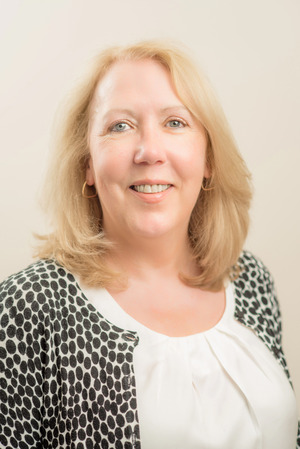24 in 24 Blog Series – Serving Remote and Rural Communities
 This week’s blog is by Elaine Munro, Principal of UHI Argyll. Colleges Scotland is marking the diversity and variety of the work that Scotland's 24 colleges do with our new blog series, 24 in 2024.
This week’s blog is by Elaine Munro, Principal of UHI Argyll. Colleges Scotland is marking the diversity and variety of the work that Scotland's 24 colleges do with our new blog series, 24 in 2024.
When asked to contribute to this series of blogs, I began to think about how our college, with its unique structure of small centres, widely dispersed across the vastness of Argyll, has become an intrinsic part of the fabric of life for remote and rural communities in Argyll. What impact would communities feel if we had never come into existence?
Argyll and Bute is the second largest, and third most sparsely populated local authority area in Scotland. Covering nearly 9% of Scotland’s total land area, the region is known for its natural beauty, including forests, beaches, and coastal landscapes. It has a rich history with ancient monuments and medieval castles. The region’s diverse geography, from mountains and lochs includes 23 inhabited islands, and 4 out of 5 of us live within 1km of the sea. Sounds idyllic, doesn’t it? We are fortunate to live in one of the most beautiful parts of the country, surrounded by wildlife, stunning scenery and endless opportunities to enjoy the outdoors.
This description though, belies the challenges which face our communities. Our population is not only rapidly aging, but also in decline, a trend which is projected to continue well into the next decade, despite efforts across the board to address this. Getting around can be difficult, with a fragile road infrastructure (think weather related major route closures which cut off communities for months at a time) and public transport options are extremely limited - sometimes based solely around the school bus.
Like young people in rural areas across Scotland, many school leavers in Argyll are eager to escape the perceived limitations of country living and experience the bright lights of the city. They are keen to move away to study, and may not return, contributing to depopulation and that ageing demographic which puts some small communities in a perilous state.
UHI Argyll offers people the chance to remain in the place they love; to continue leading the life they have established, while being given parity of opportunity with others all over Scotland.
This, I feel, is where the true value of a college like ours can be found. We underpin the viability of our community by offering an alternative to moving on to move up. Just one generation ago, the only option for those going into post-school education was to move out of the area. Now, I am happy to say, our communities can take advantage of further and higher education and can remain in Argyll to complete degrees and post graduate qualifications as part of the University of the Highlands and Islands.
Our college was established in 1999 specifically to support communities who at that time were unable to benefit from the burgeoning digital revolution and improvements in connectivity being enjoyed in more populated parts of the country. At that time, we pioneered the virtual classroom – a concept which, post pandemic, is second nature to most of us. The embryonic broadband network of the first years of the century ensured that our college learning centres were an essential component in providing access to high-speed online learning and interactive video lectures for communities who were still struggling with dial-up connections at home as little as 5 years ago.
Technology has come a very long way in the past three decade and if we were designing UHI Argyll today we may have a very different structure. Although most of us now have sufficient connectivity and digital devices which would enable truly remote learning, when I see the person-centred support provided to students in our network of centres, it’s obvious to me that it’s the personal touch which is the ‘magic ingredient’ making the difference to those who pass through our doors.
Rural schools face challenges too: a lack of housing and falling school rolls, amongst other factors, can complicate staff recruitment. The college’s Senior Phase programme often enables high schools to ensure pupils receive a wide range of subject choices, vocational as well as academic, and without a local FE provider, the entire educational environment in the region would be diminished.
Argyll has a higher proportion of small businesses relative to the population than the national average. Three quarters of private sector employment comes from SMEs. Given the distances involved in accessing training in the Central Belt, having a local provider is critical to many business owners and we work closely with business and organisations such as Argyll and the Isles Tourism Co-operative to build an employability pipeline.
In a small college like ours, the success stories seem personal: apprentices working with employers at the pinnacle of their profession; previously disengaged students moving into meaningful employment; adult returners achieving master’s degrees; and school pupils experiencing the very widest educational opportunities.
UHI Argyll is more than an educational institution; it’s a catalyst for positive change in Argyll and Bute, and Arran. By creating equality of opportunity, addressing depopulation, and supporting small businesses, the college is helping to build a stronger, more resilient community.


